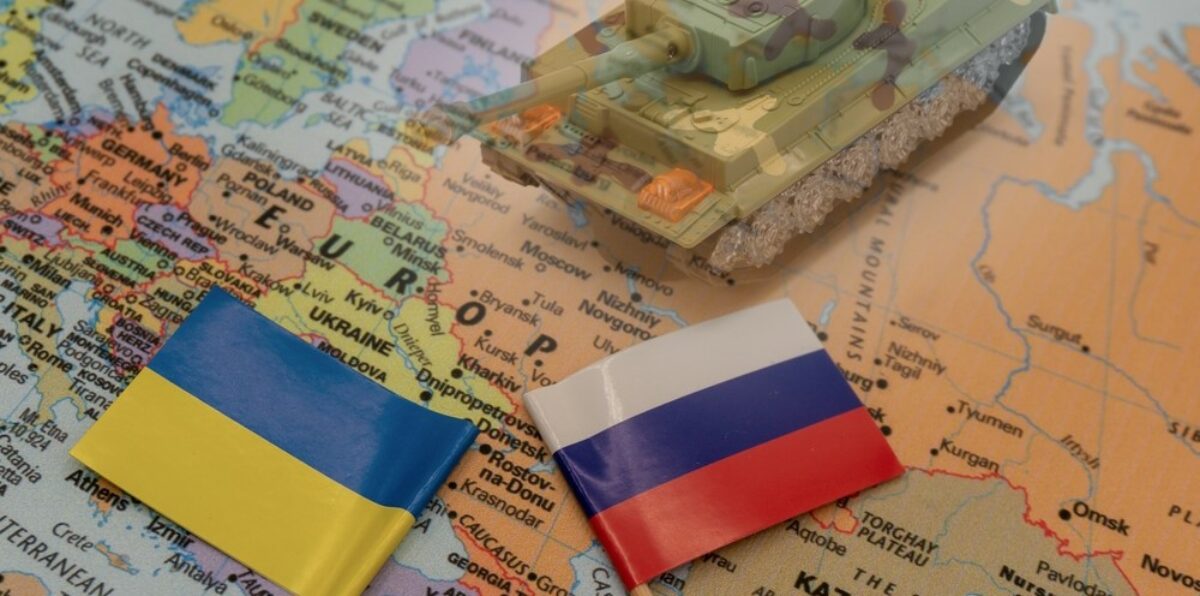
Russia-Ukraine conflict
Following Russia’s invasion of Ukraine on 24 February, the European Union (EU) imposed a number of economic and trade sanctions on Russia. These new relationships have had significant economic impacts on our companies, and also directly within Belgian households, in their consumption of energy, gas and even bread.
To better understand the impact of this conflict on your activities, hub.brussels has gathered all the useful information together in this evolving blog to:
- inform you about the measures and sanctions taken against Russia
- direct you to the appropriate contact persons if you have any questions.
Economic and financial sanctions
This new strict sanctions regime – because it is not an embargo as such – still allows Belgian companies to export their goods. However, please note that problems with payment and delivery of goods are still possible for foreign companies.
The main restrictive measures taken against Russia are:
- a ban on the sale, supply, transfer or export to Russia of specific goods and technologies used in oil refineries,
- an export ban on goods and technology in the aviation and space industry, as well as a ban on the provision of insurance, reinsurance and maintenance services related to these goods and technology, The EU will also prohibit the provision of related technical and financial assistance,
- a ban on the sale, supply, transfer or export, directly or indirectly, of maritime navigation goods and technology to any natural or legal person, entity or body in Russia for the purpose of their use in Russia or their installation on board a vessel flying the Russian flag,
- a ban on new investments in the Russian energy sector, the introduction of a global export restriction on equipment, technologies and services for the energy sector,
- a ban on imports from Russia of crude oil and refined petroleum products, with limited exceptions
- a complete ban on the sale, delivery, transfer or export of dual-use goods* to Russia,
- the introduction of trade restrictions on iron, steel and luxury goods.
- a prohibition to purchase, import or transfer coal and other solid fossil fuels into the EU if they originate in Russia or are exported from Russia, as from August 2022. Imports of coal into the EU are currently worth EUR 8 billion per year.
- export bans, targeting jet fuel and other goods such as quantum computers and advanced semiconductors, high-end electronics, software, sensitive machinery and transportation equipment.
- import bans on products such as: wood, cement, fertilisers, seafood and liquor.
- a prohibition to provide access to EU ports to vessels registered under the flag of Russia. Derogations are granted for agricultural and food products, humanitarian aid, and energy.
- a ban on the provision of credit rating services, as well as access to underwriting services in connection with credit rating activities, to any Russian person or entity,
- an asset freeze and a ban on making funds available to 654 Russian individuals and 52 entities,
- a ban on flying over EU airspace and access to EU airports for all types of Russian carriers,
- the exclusion of 10 Russian banks and 1 Bielorussian bank from the SWIFT system.
All the EU’s restrictive measures in response to the crisis in Ukraine can be found HERE.
Do you have a question regarding the interpretation of the new sanctions and licence applications for dual-use goods and technologies? Contact the Licensing Unit of Brussels International: du-arms@sprb.brussels
* “Dual-use” goods are goods designed for civilian purposes but which may have both civilian and military uses. This suspension is effective immediately and of indefinite duration. These goods include software and technologies. They are likely to be used for the design, development, manufacture or use of weapons of mass destruction (nuclear, chemical or biological).
Economic impacts
Belgian companies
According to data collected by Altares Dun & Bradstreet, 2,156 Belgian companies are directly or indirectly affected by the conflict in Ukraine and the sanctions imposed on Russia. 1,621 Belgian companies have direct or indirect links with Russia and 470 with Ukraine. In addition, 61 Belgian companies work directly with Russian suppliers and four with Ukrainian suppliers.
Energy
Russian gas accounts for approximately 40% of the European gas market and 27% of the oil market. More broadly, 60% of the energy consumed in the EU is imported, making member countries vulnerable to the sharp price increases exacerbated by the conflict, whether or not they buy their gas and oil from Russia. Although not heavily dependent on Russian gas deliveries, the Belgian market could see prices soar due to the prices set by the world market.
Metals
Aluminium, nickel, titanium and palladium (essential to the aerospace and automotive industries), produced in large quantities by Russia, have seen their prices soar to record levels due to fears that Russian production will be restricted by sanctions.
Agricultural sector
The war between Russia and Ukraine has led to a sharp increase in the world prices of most grains and the agricultural sector is expected to suffer the most from the conflict. Ukraine has the largest area of arable land in Europe and 25% of this land is the most fertile, black, humus-rich land. Ukraine is also the world’s largest exporter of sunflower, which feeds much of Europe’s livestock. Ukraine is the world’s second-largest producer of barley, third-largest producer of corn and eighth-largest exporter of wheat.
Trade relations with Ukraine and Russia
Ukraine
- Brussels exports of goods to Ukraine in 2020 represented 3.61% of Belgian goods exports to that country, or EUR 15.4 million, down 28% from 2019 (EUR 21.4 million). Ukraine was our Region’s 33rd largest client in 2020.
- In 2020, the main goods exported by the Brussels-Capital Region were 95% products from the chemical or related industries (EUR 14.7 million), mostly medicines and other immunological products.
- In the first 11 months of 2021, Brussels exports to Ukraine amounted to EUR 32.3 million, more than double the total for the tax year 2020. 95% were products in the chemical and related industries (EUR 30.7 million).
- Brussels imports from Ukraine reached EUR 0.78 million in 2020. They were mainly wood and wood products (EUR 186 thousand), machinery and electrical equipment (EUR 134 thousand) and vegetable products (EUR 124 thousand).
- These imports amounted to 0.94 million EUR in the first 11 months of 2021.
Russia
- Brussels exports of goods to Russia in 2020 represented 1.75% of Belgian goods exports to that country, or EUR 48.2 million, up 32% from 2019 (EUR 36.6 million). Russia was our Region’s 16th largest client in 2020
- In 2020, the main goods exported by the Brussels-Capital Region were products from the chemical or related industries (72.57%, or EUR 35 million), mostly pharmaceutical products) and transport equipment (22.76%, or EUR 19.9 million).
- In the first ten months of 2021, Brussels’ exports to Russia amounted to EUR 67.2 million, which suggests a largely upward trend compared to the tax year 2020. Chemical and related products accounted for 69.6% (EUR 46.8 million) and transport equipment 26.3% (EUR 17.7 million).
Imports from Russia amounted to EUR 4 million in 2020 (Russia was the 47th largest supplier to the BCR). These were mainly products from the chemical or related industries (41% or EUR 1.6 million), and mineral products (26%).
Any questions? Contact François!

François Cahour
Area Manager Europe centraleT. 0490 67 25 58
fcahour@hub.brusselsMore news

After Audi: Brussels foreign trade in the first half of 2025
Posted on 28/01/2026
